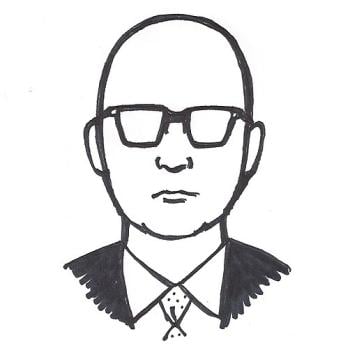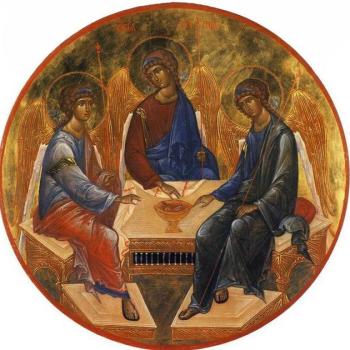You also talk about other practices that are important in nurturing the faith formation in young people. You refer to these as "liminal experiences," those places where kids can, as another youth ministry teacher Mark Yaconelli says, have their hearts broken open. Can you say more about these practices and why they're important?
The two experiences I talk about in the book are mission trips and prayer. Mission trips have all sorts of problems with them and it behooves us to go into them cautiously. The biggest problem is that we think they're for other people. But what makes the heart break open is the sense of being removed from our previous self-definitions and allowing ourselves to be claimed by another human being, another perspective on the world. I actually think that it's this encounter with the other which is the non-negotiable part of the way we live our lives. By other I mean both the "little o" (the other human being), and the big "O," God. So, yes, in going across a boundary to encounter people who see the world differently than we do -- it might be on a mission trip, or it might be in the cafeteria -- the other makes a claim on us, not because we have something to give them, but because they have something to give us.
The encounter with God as "the Other" is what prayer offers. That's a different kind of liminality, but it's still the encounter with otherness that prayer opens us up to. It requires us to go into this in-between space and take risks.
How do you hope this book will be of help to youth ministers and the church?
I'm not sure I know the answer to this question. Nobody I know who is a youth minister is surprised about the results of the study. It would be great if it helped churches take a good, honest look in the mirror and begin to do some serious self-reflection about who we're called to be in the world, and the message that sends young people. What I really want parents and congregations to do is one radical thing because of their faith, and do it in front of their children, and let children know that it's because you're a follower of Christ that this radical thing matters. Christian Smith (NSYR lead researcher) suggests giving away 20% of our income, but I think it could also mean changing jobs, changing neighborhoods, changing friends. It might mean sharing your home with a foreign exchange student, or going to a struggling church instead of a successful one. Doing one radical thing because of our faith would speak volumes.
So that a young person would "catch" the passion of this faith . . .
Or at the very least they could look at their parents or someone in their church and say, "Wow, that‘s what faith does to people, that's what Christianity makes you do! You can live no other way." Unfortunately, the example we give them is that you can live the American dream just fine and still call yourself Christian and it doesn't really seem to make a difference. So what do they learn? They learn that Christianity doesn't seem to make a difference, so why would they be sold out for that?
At the conclusion of your book you say that while the findings of this study deeply disturb you, you leave this project "strangely hopeful." What makes you able to say that?
I think the most hopeful thing for me is that young people, even though they adhere to moralistic therapeutic deism, are not giving their lives to it. It's not big enough, it doesn't matter enough, it's not substantial enough, it doesn't have enough teeth for them to give their lives to it. So what are they giving their lives to? Well, all sorts of things that are problematic. But I believe with everything in me that kids want something to live for that's worth dying for. And if Christianity isn't it, they'll go find something else. Unfortunately, a lot of the things that kids are giving their lives to are pretty flimsy gods and pretty short-lived ways of being in the world. So I actually do think Christianity has a better story than what most of them are going after.
But if we don't tell a story that's worth going to the mat for, then I don't know why you would necessarily give yourself over to it. So I actually think it's a good thing teenagers are ho-hum about what they think of Christianity -- because that's not Christianity. It's a distorted vestige of what Christianity once was. But if the Gospel is presented in full -- and by presented I don't mean just verbally, but lived, in all of its radical implications -- I think that will get young people's attention in ways that moralistic therapeutic deism doesn't.
The other thing that gives me hope is all of the people who are committed to kids in the church. Youth ministers are an irrationally hopeful breed. I have the privilege of working with youth ministers all the time, and they are constantly ignoring what's impossible and doing it anyway, and that's the "one radical thing" that keeps the church alive. God shows up under conditions like that -- and not so often in sermons about being a good citizen.





